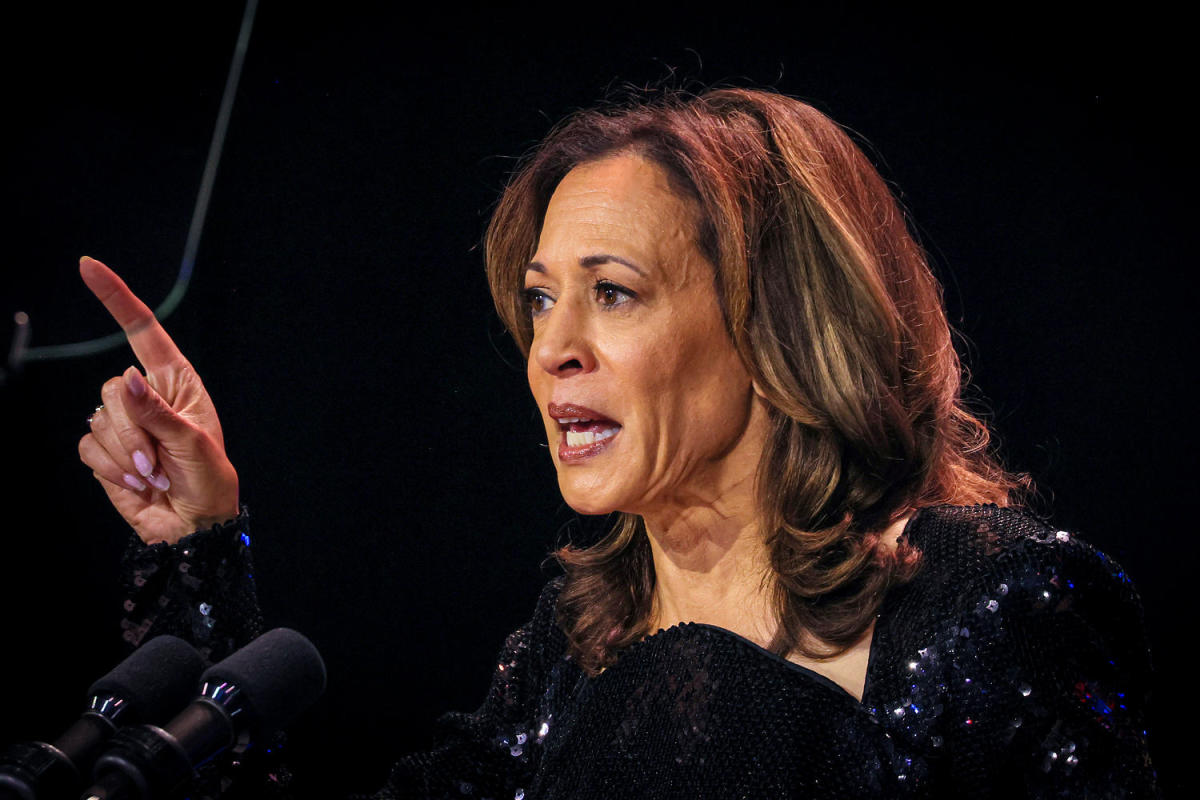An overwhelming majority of Black voters in key states have said they will vote for Vice President Kamala Harris in November, but she will need to close the deal with some skeptical undecideds to match President Joe Biden’s margin among Black voters in 2020.
The data, from a new Howard University Initiative on Public Opinion poll of 963 likely Black voters in Arizona, Georgia, Michigan, Nevada, North Carolina, Pennsylvania and Wisconsin — the seven key states in the race — shows that 82% say they will vote for Harris, while 12% say they will vote for former President Donald Trump. Another 5% are undecided, and 1% plan to choose another candidate.
The findings are consistent with 2020 exit polls in the same crucial states, where 89% of Black voters supported Biden and 9% Trump, and with other post-election research on the 2020 vote.
While black voters in swing states largely support Harris, there are some important differences among subgroups of black voters.
“We have 100% black voters in the poll, and that gives us an opportunity to dig deeper into the diverse representations of thought in black communities,” said Dana Williams, co-director of the Initiative on Public Opinion and dean of the Graduate School at Howard University.
“It’s important that the voices of Black people are heard and known,” Williams added. “I think part of the responsibility of the mainstream media is to reflect the population, and as one of the fastest growing demographics, we need to spend a lot more time thinking about what’s going on in their minds so that legislative agendas, presidential agendas, messaging on all those fronts doesn’t ignore a significant voting population.”
Overall, black women and a similar 81% of black men said they would vote for Harris over Trump. Older voters are more steadfast in their support for Harris, while younger voters are more divided.
While 89% of black voters aged 50 and older said they would vote for Harris and only 8% planned to vote for Trump, the breakdown among those aged 18 to 49 was different: 75% voted for Harris, compared to 16% who voted for Trump.
The age gap was especially evident among black men.
Among respondents, men under 50 support Harris by 50 points (72% to 21%), while Harris’s edge among men 50 and older is 78 points (88% to 10%). Among young women, Harris’s margin is 65 points (78% to 13%) — but among older women it’s 84 points (89% to 6%).
(Rounding takes into account any differences between reported margins and differences between reported voting shares.)
Meanwhile, black voters in swing states with college degrees prefer Harris over Trump by 73 percentage points, while black voters without college degrees prefer Harris over Trump by 68 percentage points.
The poll shows that younger and less educated voters are more likely to support Trump.
Just over a quarter (26%) of men under 50 without a college degree said they would vote for Trump, compared to 67% who said they would vote for Harris.
Voters who responded to the poll said they were motivated to vote for Harris based on her views, values, and temperament. However, they rated Trump’s views, values, and temperament as the most important factors that made black voters less likely to vote for him.
Black voters in the survey cited Harris’ temperament (79%), her positions and agenda on abortion and reproductive health care (79%), and her values (78%) as the issues that would make them more likely to vote for her. Harris’ positions and agenda on immigration (19%) and the conflict in Gaza (17%), as well as her record as a prosecutor (15%), were among the top reasons respondents cited as reasons they would be more likely to vote for her.
When it comes to Trump, voters said his positions and agenda on the economy (18%), his positions and agenda on immigration (17%), his record on business (16%), and his record as president (16%) would make them more likely to vote for him. The top reasons cited for making voters less likely to vote for Trump were his temperament (81%), his positions and agenda on abortion and reproductive health care (80%), and his values (80%).
Black voters surveyed most associated Harris with abortion rights and reproductive health policies (28%) and economic policy (26%). Opinions on Trump were more mixed, with a 14% majority saying they most associated him with border control and immigration policy.
The poll found that 84 percent of black voters who responded said they were concerned about an increase in hatred or brutality against African Americans if Trump wins. Forty-five percent said they had the same concerns about an increase in hatred or brutality against African Americans if Harris becomes the second black president.
“What the media tells us is important to voters shapes the way candidates respond to what they learn,” Williams said. “And if they don’t learn what black voters think, they continue to be driven” by reporting and polling that doesn’t dig as deeply into black opinion.
The Howard Initiative on Public Opinion designed and administered the multimodal survey of 963 likely voters who identified themselves as African American or black and reported being registered to vote in Arizona, Georgia, Michigan, Nevada, North Carolina, Pennsylvania or Wisconsin. The survey was conducted September 4 through September 11 via online text-to-Internet surveys and telephone interviews (landline and cell phone). The margin of error for likely voters is plus or minus 3.2 percentage points.
This article was originally published on NBCNews.com






